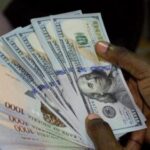The Nigerian financial market is experiencing a resurgence in foreign investor interest, thanks to a wave of reforms spearheaded by Olayemi Cardoso, the Governor of the Central Bank of Nigeria (CBN). These policy changes are beginning to deliver tangible results, positioning Nigeria as an attractive destination for global capital in 2025.
During a recent investor call with a leading international bank heavily invested in Africa, senior executives expressed strong confidence in Nigeria’s economic outlook. Their strategy for 2025 was summed up succinctly: “Sell everything else and buy Nigeria.” This bold stance underscores the renewed optimism surrounding the country’s financial markets.
CBN Reforms Ignite Investor Confidence

Foreign investor enthusiasm can be traced back to critical reforms implemented by the CBN, particularly in the foreign exchange (FX) market. The central bank’s commitment to enhancing transparency and market efficiency has been pivotal.
Key among these reforms is the introduction of the Electronic Foreign Exchange Matching System (EFEMS) in December 2024, designed to improve transparency in dollar pricing. Additionally, the CBN raised interest rates on treasury bills, attracting significant foreign capital inflows. These moves have helped stabilize the naira, which had previously struggled with volatility.
Another game-changing policy was the directive for Nigerian banks to offload excess dollar reserves, coupled with the removal of transaction caps for International Money Transfer Operators (IMTOs). This strategy aims to boost the inflow of diaspora dollars, providing additional support for the naira.
As a result, the naira hit an eight-month high of ₦1,474.78/$ in the official FX market last Friday, a development that has delighted both foreign investors and local businesses that had been grappling with currency fluctuations.
High Yields Add to the Allure
Alongside currency stability, Nigeria’s rising interest rates are turning heads in global investment circles. The yield on one-year treasury bills has climbed to an impressive 27%, while seven- and ten-year bonds recently sold at rates around 22.5% during government auctions. Analysts predict this upward trend in yields will continue through the first half of 2025.
In its latest report titled “Emerging Market Frontier Local Markets Compass,” J.P. Morgan highlighted Nigeria’s growing appeal:
“We remain bullish on Nigerian T-bills as the positive effects of recent reforms are becoming evident.”
The report also emphasized that Nigeria’s T-bill market is now heavily influenced by investor confidence in the naira, which has emerged as one of the best-performing frontier currencies in early 2025.
Pathway Back to JP Morgan’s GBI-EM Index?
Local financial experts believe that Nigeria’s robust reforms could pave the way for its re-admission into the J.P. Morgan Government Bond Index-Emerging Markets (GBI-EM). This influential index tracks local currency bonds from emerging markets, including nations like Brazil, Thailand, Turkey, Peru, and South Africa.
Nigeria was removed from the index in 2015 after restrictive policies from the CBN, such as halting the weekly dollar auction, made it difficult for foreign investors to accurately replicate Nigeria’s bond market performance within the index.
However, sources familiar with the situation suggest that Nigeria has done all the necessary groundwork for re-entry.
“The structural reforms are in place. Now, it’s a matter of investor demand,” a market insider noted.
Foreign Investment Surge and Billion-Dollar Bets
In recent months, Nigeria has welcomed delegations from several international banks, including heavyweights like J.P. Morgan, marking their first visits in over five years. The difference this time? Nigeria is no longer just a stop on their tour—it’s central to their investment strategies.
“They visited around the same time last year to gauge Nigeria’s direction. Promises were kept, returns were strong, and FX remained stable. That’s why they’re doubling down now,” a source familiar with the matter explained.
Reports also suggest that a major foreign investor recently injected close to $1 billion into the Nigerian economy, reflecting growing confidence in the country’s financial stability and potential for high returns.
Looking Ahead
As 2025 progresses, Nigeria’s financial landscape appears increasingly promising. The combination of:
- Stable naira performance
- Attractive yields on government securities
- Pro-market reforms from the CBN
- Renewed interest from global financial giants
…is creating the perfect storm for sustained foreign investment.
While challenges remain, particularly regarding inflation and fiscal pressures, Nigeria’s current trajectory suggests that it’s well on its way to reclaiming its position as a top investment destination in emerging markets. Investors, both local and international, will be watching closely to see if these positive trends continue.


